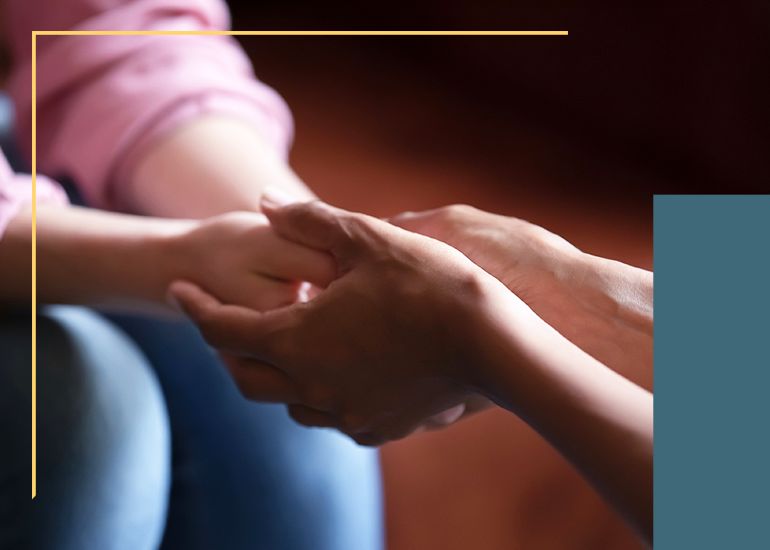Let Us Be Your Partner in Recovery

Northridge Opioid & Opiate Rehab
Opioid & Opiate Addiction Treatment
Opioids, which include naturally derived opiates, are a group of powerful drugs used to treat moderate to severe pain. Because they are highly addictive, opioids are heavily regulated in the United States. Despite this regulation, millions of Americans misuse and abuse opioids every year. In fact, opioid abuse has become so widespread, that it is classified as an epidemic.
People struggling with opioid abuse and addiction may find it incredibly difficult—if not nearly impossible—to stop using these drugs on their own. Most people who successfully recover from opioid/opiate addiction do so with the help of a professional treatment program. At Miracles in Action, we offer comprehensive opioid addiction treatment in Northridge. With a highly personalized, whole-person approach and clinically proven treatment methods, our program is designed to help adults with opioid use disorders get the ongoing support they need to successfully break the cycle of abuse and go on to lead healthy, happy, and sober lives. We also have a separate track for adolescents struggling with addiction and mental health issues.
What Are Opioids/Opiates?
Opioids are a class of drug commonly referred to as “painkillers.” They can be naturally derived, man-made (“synthetic”), or a combination of both (“semi-synthetic”). The term “opiates” refers to naturally derived opioids.
While some opioids are illegal in the United States, such as heroin, others are available by prescription and/or used in hospitals and medical offices. Legal opioids are used to treat moderate to severe pain in patients with a variety of illnesses and medical conditions, such as cancer.
Some examples of opioids include:
- Morphine
- Codeine
- Fentanyl
- Oxycodone
- Hydrocodone
- Methadone
- Heroin
- Tramadol
Prescription opioids include drugs like Vicodin (hydrocodone), OxyContin and Percocet (oxycodone), and Avinza (morphine), among many others.
If you or someone you love is struggling with opioid/opiate addiction, contact Miracles in Action at (818) 287-0080 and speak to one of our compassionate team members today.
How Are Opioids Abused?
Any use of an illicit opioid drug, such as heroin, is considered abuse. However, prescription opioids, like Vicodin and OxyContin, have accepted medical uses. When used correctly and as prescribed by a doctor, this is not considered abuse. But, when an individual begins taking opioids, including prescription opioids, in any way other than instructed, this is considered “misuse” or “abuse.”
Opioid misuse and abuse include:
- Taking more than the prescribed amount
- Taking more frequent doses than prescribed
- Taking someone else’s prescribed medications
- Visiting multiple doctors to obtain more than one prescription
- Continuing to take opioids for longer than prescribed
- Taking opioids to get high/for the side effects
- Using non-prescribed methods (e.g., snorting or injecting) to take opioids
- “Borrowing” someone else’s prescribed medications
- Buying from someone who is selling prescription or illicit opioids
Over time, opioid misuse and abuse can lead to increased tolerance and dependency. As someone’s tolerance goes up, they will need to take greater amounts of the drug more frequently to achieve the same effects. This can be incredibly dangerous, as it puts the individual at risk of an overdose.
Addiction typically forms once a person has become physically and/or mentally dependent on an opioid drug. At this point, the person will generally experience symptoms of withdrawal when not using opioids and may continue to take drugs despite numerous negative consequences in their life, ranging from financial and legal problems to changes in mood and personality to significant difficulties at home, school, work, and with personal relationships.
Treating Opioid Addiction
Although opioids are extremely powerful and highly addictive, professional opioid addiction treatment has been shown to be effective. Clinically proven methods of treating opioid abuse and addiction can allow people to safely detox and get the help they need to navigate a successful recovery.
While every situation is different, opioid addiction treatment often includes the following:
- Safe, monitored detox, including medication-assisted treatment (MAT)
- Residential rehab (for moderate to severe opioid addiction)
- Partial hospitalization programs and/or intensive outpatient programs
- Standard outpatient (non-residential) treatment
- Dual-diagnosis treatment for co-occurring mental and behavioral health concerns
- Continued support and aftercare
At Miracles in Action, our Northridge opioid addiction treatment center offers a safe, welcoming, and judgment-free setting for individuals to get the personalized treatment and support they need. Our team utilizes cutting-edge treatments and proven programs to provide our patients with the tools they need to develop healthy coping skills, manage cravings, avoid triggers, and prevent relapse for lasting sobriety.
-
What is partial hospitalization (PHP)?Partial Hospitalization, otherwise known as PHP, is a form of treatment that allows individuals struggling with mental health and substance abuse to continue living at home while traveling to treatment (usually 3 to 5 times a week). This outpatient program offers all of the benefits of residential treatment but allows individuals to still reside in the comfort of their homes.
-
How does drug addiction treatment work?
Addiction affects everyone differently. As such, there is no one-size-fits-all approach when it comes to drug addiction treatment. Instead, the process begins with a personal assessment and evaluation. During this initial meeting, our drug addiction treatment specialists ask a series of questions designed to assess an individual’s level of addiction and recovery needs. Once the assessment is complete, our specialists recommend a personalized treatment program. This program may involve a combination of proven addiction treatments, such as cognitive-behavioral therapy, group therapy, family therapy, stress management, and more. Most often, our patients begin by attending treatment several days a week at one of our facilities. As they progress through recovery, the number of times they need to visit the facility for treatment may gradually decrease.
-
If I go to rehab, will I have to live at the rehab facility?
Whether or not you will need to live full-time at a rehab facility will depend on the specific details of your situation. For those struggling with very severe substance use disorders, inpatient (or residential) treatment may be recommended. Others, however, may benefit from an outpatient (or non-residential) rehab program.
-
What is outpatient treatment?
Outpatient treatment simply means that you do not live full-time at the rehab facility where you receive addiction treatment services. Instead, you visit the facility several times a week for several hours at a time to attend therapy, take part in support group meetings, and receive other treatments specifically tailored to you and your recovery. You then return home to sleep and manage outside responsibilities, such as going to school, working, or taking care of your child. Our outpatient treatment programs include Drug & Alcohol Addiction recovery along with Mental Health Disorders.

Healing Is Possible with Miracles in Action
We understand that taking the first step and reaching out for help for a substance use disorder can be incredibly difficult. Our empathetic team of addiction treatment specialists is here to guide you every step of the way. Whether you are seeking help for drug addiction, or you are concerned about a loved one, you can get in touch with us at any time to get the answers and information you need.
We have an addiction treatment center in Northridge, where we provide comprehensive recovery support for adults and adolescents in Porter Ranch, Granada Hills, Montrose, Toluca Lake, Glendale, and all of the surrounding areas. Learn more about our special programs for CSUN students and first responders, as well as how we can design the right recovery program for you.

-
“Miracles in Action provides a warm, loving, and family feel to the recovery process. I can say that I am very fortunate to have witnessed the miracles that take place here. The management and clients' past and present continue to make this place a success. Thank you Miracles in Action for all that you do. ”
- A.M. -
“Miracles in Action offers stability and recovery. It helps you put your life back together in an environment where people are supportive of one another. I am blessed to bear witness to the miracles that have taken place here. ”
- L.W.

